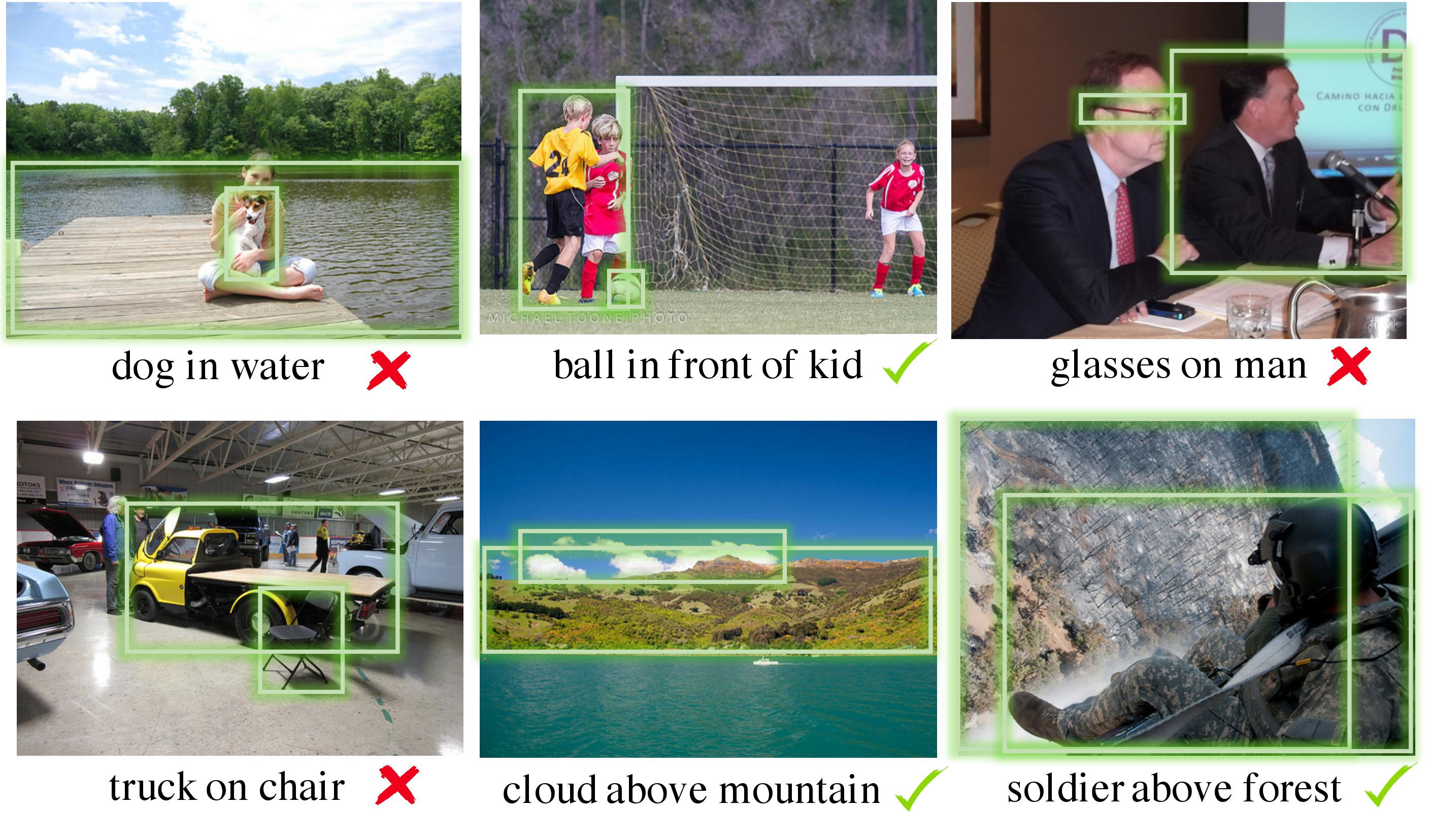SpatialSense: An Adversarially Crowdsourced Benchmark for Spatial Relation Recognition
Understanding the spatial relations between objects in images is a surprisingly challenging task. A chair may be "behind" a person even if it appears to the left of the person in the image (depending on which way the person is facing). Two students that appear close to each other in the image may not in fact be "next to" each other if there is a third student between them. We introduce SpatialSense, a dataset specializing in spatial relation recognition which captures a broad spectrum of such challenges, allowing for proper benchmarking of computer vision techniques. SpatialSense is constructed through adversarial crowdsourcing, in which human annotators are tasked with finding spatial relations that are difficult to predict using simple cues such as 2D spatial configuration or language priors. Adversarial crowdsourcing significantly reduces dataset bias and samples more interesting relations in the long tail compared to existing datasets. On SpatialSense, state-of-the-art recognition models perform comparably to simple baselines, suggesting that they rely on straightforward cues instead of fully reasoning about this complex task. The SpatialSense benchmark provides a path forward to advancing the spatial reasoning capabilities of computer vision systems. The dataset and code are available at https://github.com/princeton-vl/SpatialSense.
PDF Abstract ICCV 2019 PDF ICCV 2019 Abstract


 Visual Genome
Visual Genome
 VRD
VRD